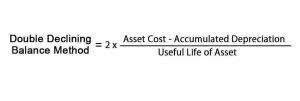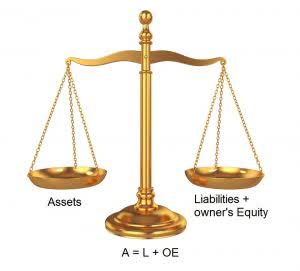Content

Getting the project’s cost right is one of the best determinators of a project’s success or failure. The good news is that project managers are getting project accounting better at balancing their books. In fact, a PMI study found nearly 60% of projects are now completed within their original budget—up from 50% in 2016.

Just as a project manager monitors the project’s schedule and scope, they also track these financial transactions to ensure they’re on budget and make necessary adjustments to avoid overspending. Project accounting allows another layer of visibility for project managers and other stakeholders to understand the overall benefit of each project. As well as that, they can track the progress of projects in real time, and make informed decisions based on up to date financial data.
Key Features
This method means you recognize revenue as it’s delivered as a percentage of the total revenue. Consider having a 3rd party project management app to integrate with QBO. These folks should have a better idea about whether or not tasks, deliverables, and milestones are actually achievable in the cost and time constraints you’ve set them.
Similarly, not knowing who is working on the project and what they’re working on can make accounting difficult. At the same time, you need to be aware of any external help that you may have hired for the project to factor in their costs. All in all, the follow-up system for all the invoices can be passed on to the system of Deskera Books and it will look into it for you. You can have access to Deskera’s ready-made Profit and Loss Statement, Balance Sheet, and other financial reports in an instant. Such cloud systems substantially improve cash flow for your business directly as well as indirectly.
AccountingTools
Proper project paperwork management includes approving billable hours and expenses, preparing and submitting invoices, collecting invoices, and recording revenue. The project accountant also submits regular financial reports to management to help track progress. It has become a core necessity tied to project management when businesses realized that each project is a unique individual entity, usually different from other business activities. Implementing project accounting into your management process could be the difference between a successful outcome and budget overrun, lack of resources, and costly delays.

Course DescriptionAccounting for a major project presents the accountant with a multitude of difficult accounting issues. The Project Accounting course shows how to deal with these concerns by describing the ideal cost collection system and how to record expenses and revenues within it. The broad range of topics covered make this course an essential tool for the project accountant. For project accountants, this means aiming to keep non-billable work to below 10 percent of your own time. This lends itself to using automated processes wherever possible to reduce the time spent collecting and generating data. Thankfully, automating your budget and tracking costs live with project accounting software like Runn can help.
Resources
They focus on things they can see—things they can measure in dollars and cents—but not on things that don’t have a price tag or aren’t as easily quantifiable. This is a common challenge with project accounting, setting the need for having at least two people for managing numbers. For instance, one for tracking them and another for double-checking those numbers. In order to enable accurate reporting and comparison, it’s crucial that the same revenue recognition method is used consistently across each project, for the whole project duration. Project profit is the difference between the revenue and the total cost of delivering it. Essentially it’s the money an organization makes from each project, when costs are deducted from the revenue.
- However, with project accounting, projects must have similar costs that can reasonably be compared.
- You’ll need to track and record when the team spends money or earns revenue, compare project budgets to projections, and make regular, frequent reports to management.
- Don’t worry about any of these (yet), by the end of this post you will understand the basics surrounding what is project accounting and be able to put the accompanying terms into practice quickly.
- Project-based businesses that derive revenues and profits from the projects they manage for their clients use project accounting to power their business and enable success.
- Additionally, it helps in providing more clarity around the progress of the project, as the time spent by each employee on each task is monitored.
Moreover, multi-level approval workflows can be defined to ensure all supervisors sign off on the submitted timesheets before the data is used for accounting purposes. Real-time intelligent approval workflows ensure that the timesheets are dynamically routed to prevent bottlenecks and delays. Typically, project accounting is used by Professional Services Organizations (PSOs) or consulting firms that use an accrual-based accounting method. This typically means these organizations are over $5M in annual revenue (otherwise organizations may use the cash-based accounting method). “Watch your pennies and the dollars will take care of themselves” is something that was coined (sorry for the pun) by William Lowndes a former secretary to the treasury of Great Britain.
Why is project accounting important?
Each project is unique and carries its own set of challenges, but one thing that remains a constant across them all? Through Deskera Books, reminders can be set with the invoices that are not being paid out, which are then sent out to the customers. Even in the case of recurring invoices, Deskera Books will become very handy especially with a payment link added to the invoice. Deskera is a cloud system that brings automation and therefore ease in the business functioning.
- Project-based accounting captures how the money flows through different components of a given project.
- The project accountant also submits regular financial reports to management to help track progress.
- To simplify this process, organize all project financials into a single source of truth—like a work management platform—so you can focus more on strategic objectives.
- While the AI may cover task estimates and the hours of labor, Forecast also gives you an opportunity to add a markup percent to provide a cushion against surprises, like supply prices increase.
- Project managers do not like budget overruns but they like it even less to inform clients of the same.
- Get your client to sign it so both sides know the expectations before any work is started.
Bring your clients into the system for stronger alignment, greater visibility, and better collaboration. Teamwork.com offers multiple free licence types so you provide a more transparent and trustworthy client experience, at no extra cost. Sign up for our newsletter for the latest industry updates, news on Replicon products and tips to better manage projects and time. Let’s begin from scratch by discussing what project accounting actually is. BGI, LLC uses Deltek Costpoint to get timely financial information and make better business decisions. However, there is a discrepancy between how much we have been paid and how much revenue we have recognized.
